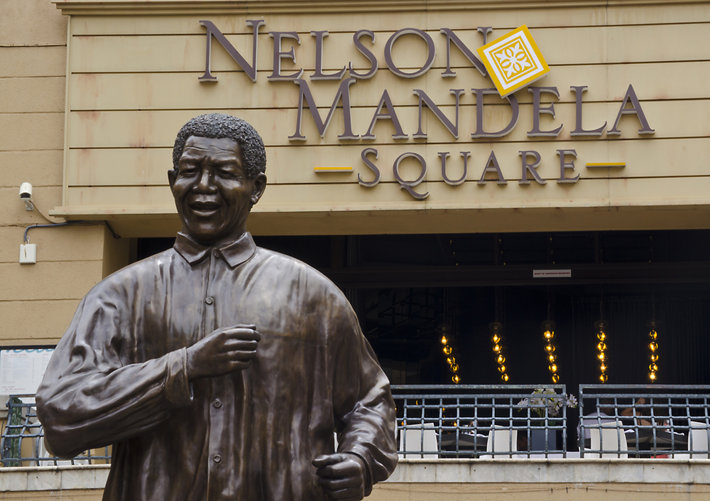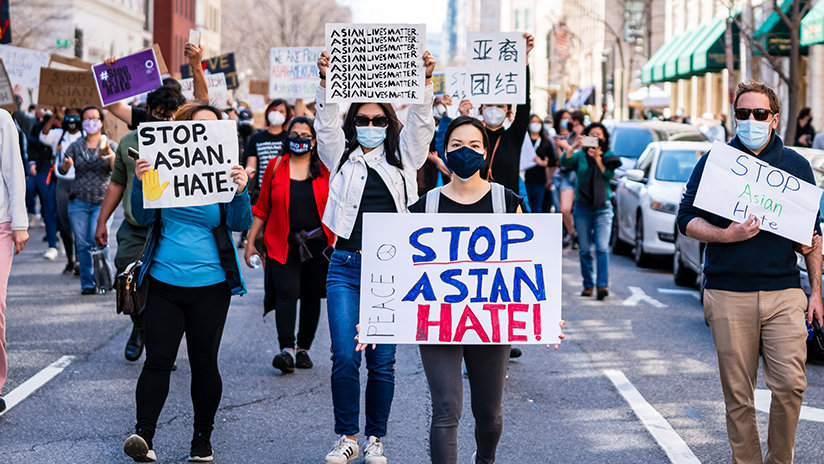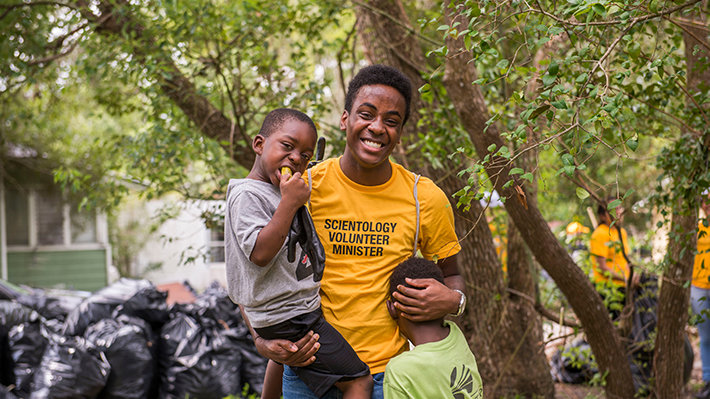
-
HOME
-
WHAT IS STANDOur Mission Our Values Our Help Contact
-
WHAT WE FIGHT FORReligious Freedom Religious Literacy Equality & Human Rights Inclusion & Respect Free Speech Responsible Journalism Corporate Accountability
-
RESOURCESExpert Studies Landmark Decisions White Papers FAQs David Miscavige Religious Freedom Resource Center Freedom of Religion & Human Rights Topic Index Priest-Penitent Privilege Islamophobia
-
HATE MONITORBiased Media Propagandists Hatemongers False Experts Hate Monitor Blog
-
NEWSROOMNews Media Watch Videos Blog
-
TAKE ACTIONCombat Hate & Discrimination Champion Freedom of Religion Demand Accountability
Lessons in Tolerance from South Africa
I guess there is bigotry everywhere, but oddly enough I don’t experience too much of that here in South Africa. If you look for it, you will probably find it, but bigots are no longer welcome here.
An American friend who was out in Joburg recently was stunned that race relations in this country were so benign, bearing in mind this is the country which invented apartheid (racial separateness). But that ended more than 20 years ago, and people have pretty much got on with their lives since then.

Some years ago, I was working on a mining project in Congo, and a Congolese businessman who had been to South Africa many times explained to me his theory about why my country functioned better than most of its neighbors: it is a melting pot of different races, religions and ideas. This made sense. Left to their own devices, people tend to get on with each other. They trade, share ideas and establish new high watermarks of aspiration. Only when you exclude people from this vital human experience—as happened under apartheid—does this lead to entropy and conflict.
Bigotry has little room to spread its wings. Our Constitution, modeled largely after the U.S. Bill of Rights, guarantees us the right to our beliefs. We’ve been through far too much pain to allow anyone to open up a new chapter of divisiveness.
L. Ron Hubbard, the founder of Scientology, came here twice in the 1960s and predicted that the next great civilization on Earth would come from southern Africa. This, too, makes sense when you analyze the durability of African culture through centuries of denigration and humiliation at the hands of colonial powers. What was never extinguished from its people was their abiding belief in the spirit of Man and his capacity for goodness.
This is true no matter where you go in Africa. Christianity may have largely replaced traditional African beliefs but, unlike in the West, atheism never gained much purchase in these parts. Millions of Africans would still rather go to a sangoma (traditional healer) than a medical doctor, because the sangoma treats the spirit as much as the body. There is massive distrust of quack practices such as psychiatry, where pharmacology substitutes for common sense.
Three hours south of Joburg in the Eastern Free State, there is a large encampment where pilgrims from all over South Africa go to visit sangomas. I once drove a number of these pilgrims to the encampment, and, when asked why they were going there, they told me: to find luck in love, to improve their financial condition, or to heal themselves from a debilitating disease. All had one thing in common: they recognized the source of their malaise was spiritual.
The growth of Christianity in Africa is a phenomenon that has fascinated sociologists such as Rodney Stark, partly because of the work of Christian missionaries, but also because the teachings of Jesus Christ and his apostles could be so readily assimilated into traditional African beliefs and offer succor in times of hardship. Nobel laureate Bishop Desmond Tutu is reported to have said: “When the whites first came to Africa they had the Bibles and we had the land. By the time we woke up, we had the Bibles and they had the land.”
Be that as it may, the reality is that Christianity has become the dominant religion here, coexisting alongside Islam, Judaism, Hinduism, Rastafarianism, traditional African beliefs and, yes, Scientology. Bigotry has little room to spread its wings. Our Constitution, modeled largely after the U.S. Bill of Rights, guarantees us the right to our beliefs. We’ve been through far too much pain to allow anyone to open up a new chapter of divisiveness.
That’s not to say we can be complacent. We have some dull-witted politicians who attempt to stoke the fires of conflict, but they are ineffective for the most part. It’s true that we had several waves of xenophobia against immigrants, some of them deadly, and the last one in 2015 was an eye-opener. But the outpouring of compassion and material support for those affected (including from Scientologists) was unlike anything previously seen in this country. The bigots were eventually hounded out of the affected communities by the police and ordinary residents (and most of these attacks were orchestrated from outside).

As a Scientologist living in Joburg, I find it rather unreal that some of my coreligionists are persecuted for their beliefs in places like France and Germany. A couple of years ago I met a French Scientologist working in the nuclear industry in France. He may be the last “nuclear” Scientologist in that country because the story he told me was disturbing: another high-ranking colleague of his (also a Scientologist) was pushed out of the company because of his beliefs. Not because he was incompetent or sloppy in his work, but because he was a practicing Scientologist.
I guess in the twisted, uninformed minds of those who make these decisions, a Scientologist could not be trusted with the plutonium rods. But hang in there, dear reader, because this has a happy ending. When another Scientologist working in France’s nuclear industry went to his bosses to find out why his colleague had been removed from his post, he also inquired gently whether this might not be a violation of human rights. From that moment on, the company refused to require that Scientologists declare their faith on employment application forms. The purpose of that French law was to identify and discriminate against Scientologists—the equivalent of the yellow star in Nazi Germany.
Some of these victories are small, and some big. By standing up for his colleague, our French nuclear worker gained crucial ground against bigotry.
I occasionally get asked by well-meaning people whether what they have read about Scientology in the media is true. I sigh and ask the person to go and research Scientology for themselves—honestly, and from the correct sources. They usually do.
Because here is another thing L. Ron Hubbard requires of us: change no person’s religion. If he chooses to study Scientology, help make him a better Christian, Jew, Sikh, Hindu or Muslim.
I’m glad Scientologists are fighting back against ridiculous and ignorant slurs. I accept that we are a new religion (though, in my family’s case, we are entering our third generation of Scientologists) but what we stand for is plain for all to see: the human condition can be improved, Man is a spiritual being who has lived before and will live again, and honesty and ethics are the route that takes us all to greater heights of freedom and ability.
Photo by UnsulliedBokeh/Shutterstock.com
Photo by tusharkoley/Shutterstock.com









